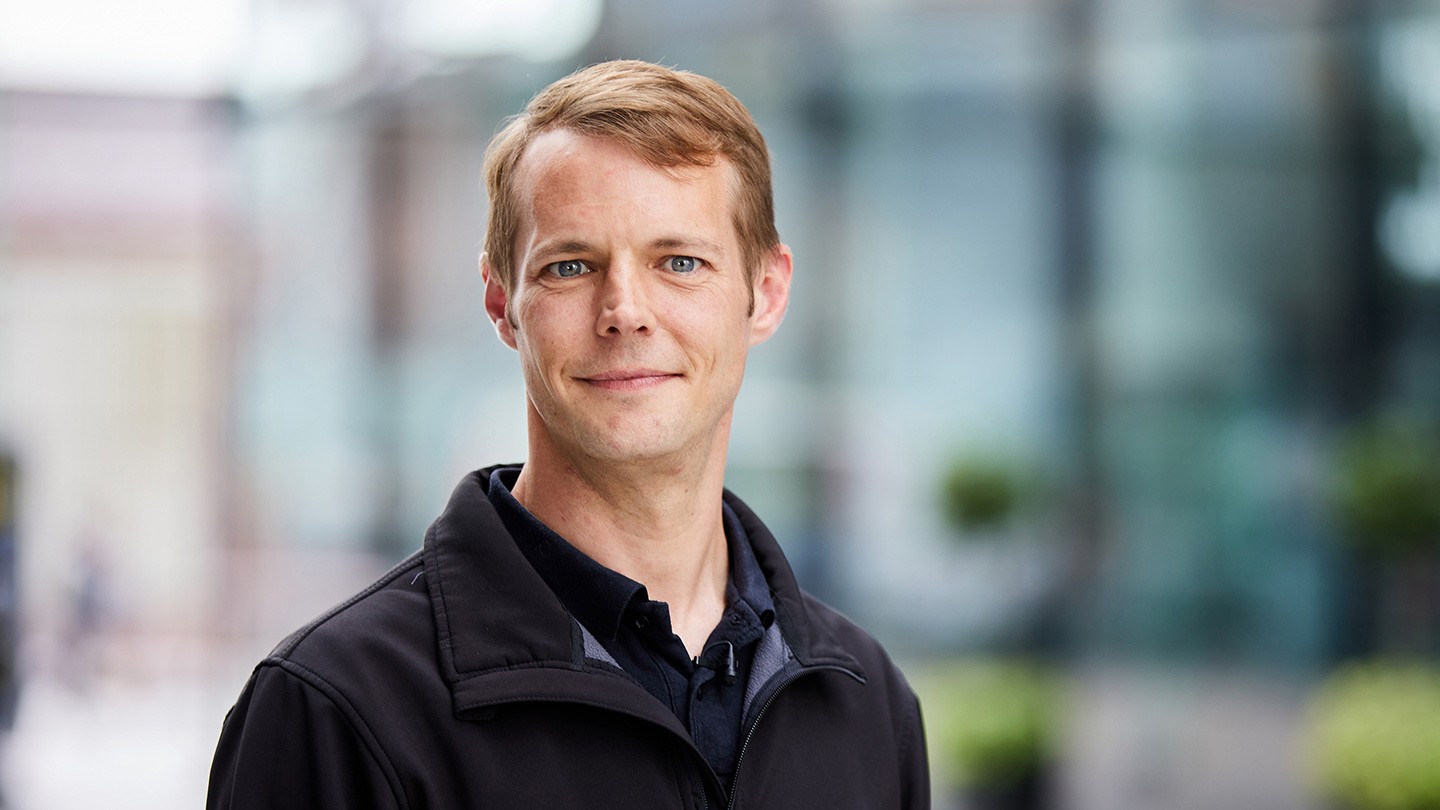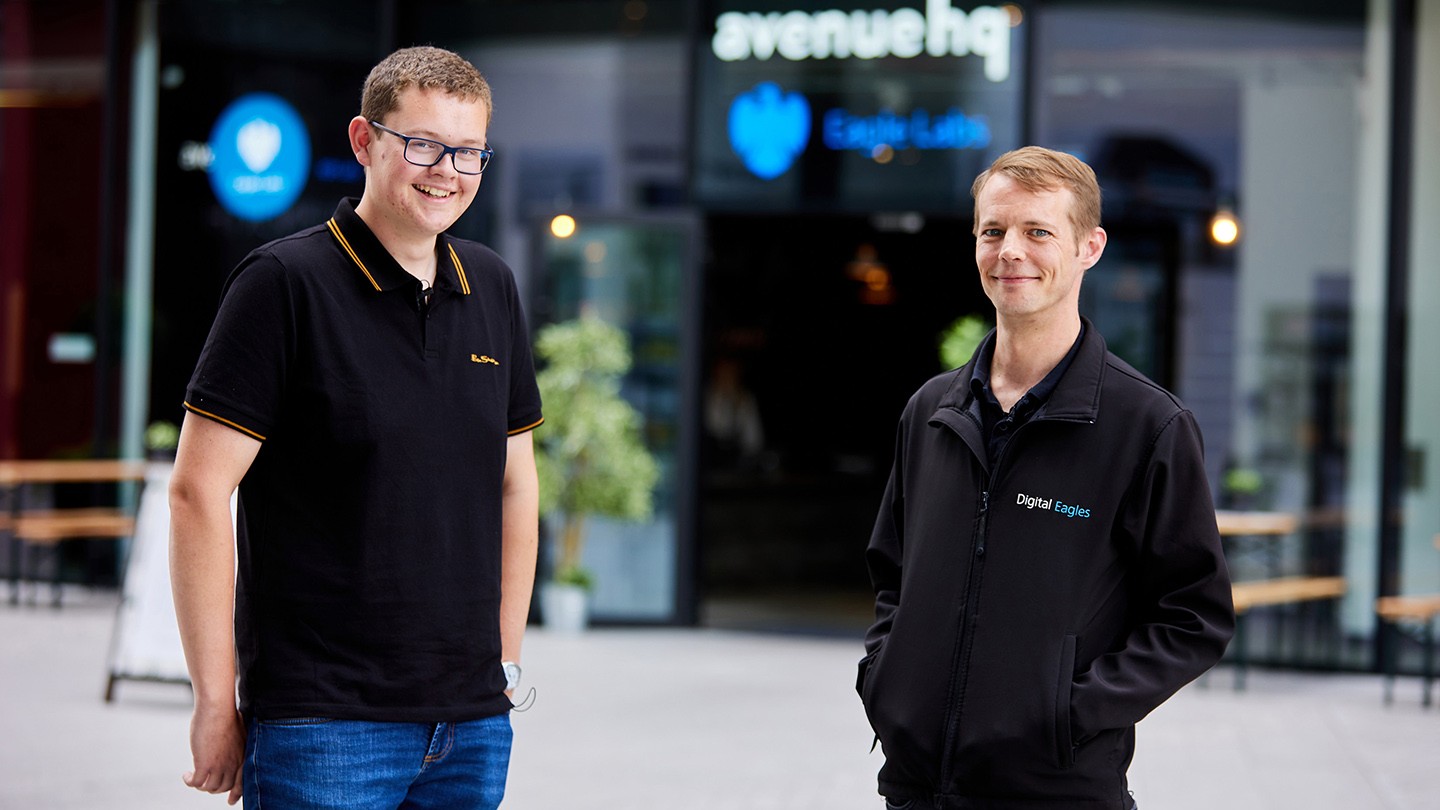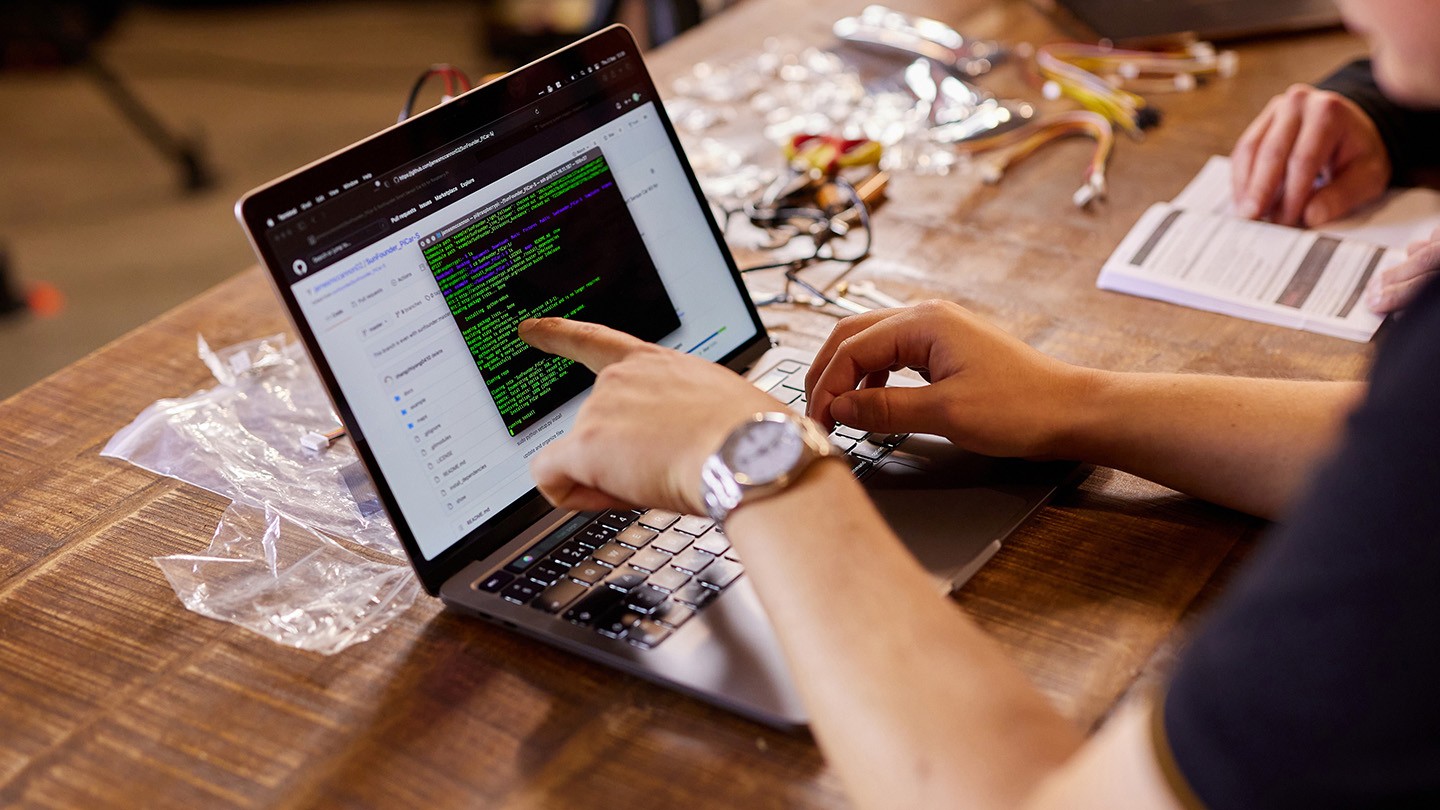
Impat
Cracking the code to a programming career
27 October 2021
Barclays’ Code Playground offers young people a space to learn more about tech – and kickstarts an interest in coding. James McCannon, who was just 12 when he joined the classes in his hometown of Liverpool, shares how the sessions shaped his enthusiasm for robotics, drones and open-source software – and set him on course for an exciting degree apprenticeship.
Back in March 2021, Kevin Garner received an unexpected text.
As Head of Code Playground, Kevin leads the Barclays programme designed to empower young people through digital literacy. He has been involved since its inception in 2015, using the bank’s facilities and expertise to teach the basics of coding to more than 300,000 children.
Kevin had spent much of the last year bringing its resources online, to help support families during the coronavirus pandemic. But this message was from a former mentee, James McCannon, who’d taken part in in-person sessions held at Barclays’ Wavertree centre in Liverpool, UK.
“It’s been a number of years since we last spoke and I am unsure if you remember myself and my sister Emily,” James wrote. “However, I would like to reach out to you and express a huge thank you for the work you and your team did with me.
“Thanks to all your work I have been inspired and since worked on building robotics, drones and open-source software used by many hundreds of people all around the world. Without you and Code Playground I would never have come this far and explored this industry in the way I have. I will forever be thankful for the opportunity.”
“I never thought I’d had that much impact,” says Kevin, “but seeing James write that was powerful – and a great reason for doing what we do.”

As Head of Code Playground, Kevin Garner is helping to drive digital literacy among young people.
We know that across the entire workplace that these digital skills are going to be absolutely critical for children who will be going into jobs that probably haven't even been invented yet.
Barclays Head of Code Playground
James is now embarking on a fully funded degree apprenticeship and says Code Playground changed his life – allowing him to get ahead of his peers by “developing my skills at a very early age and working with other people who wanted to do the same”.
Three years of monthly sessions at Wavertree set him up for A-levels in computer science, engineering and business economics. Now, James can programme in Python, HTML, Java and Swift, and says his skills have helped him “build robots and get involved with 3D printing.”
“For me, a coding project is about the satisfaction that you’ve completed it,” explains James. “Often along the way there are different complexities and by the end you’ve learned something, but there’s also a sense of accomplishment.”
“As long as you’re willing to learn, they’ll teach you”
Kevin recalls his first impressions of the then 12-year-old James, when he first started at Wavertree. “One of the main things that struck me was that he had a lot of the technical skills, but when he left, he was able to apply them to different situations,” he says. “You could definitely tell that he came to learn, and we saw him get more involved with the group. There was real collaboration between him and the other attendees and you saw that grow and develop, so that they became like a real team when they were approaching some of the projects and problems they were trying to solve.”
Code Playground introduced James to previously unexplored areas of tech, while access to hardware made higher-level projects more accessible. But James also says the opportunities to connect with others were key to his development: “I got to mix with different people, including those with more knowledge than me. In a group, you could solve problems. If it’s just by yourself, it’s much harder,” he recalls.
Without Code Playground I would never have come this far and explored this industry in the way I have. I will forever be thankful for the opportunity.
Barclays Code Playground graduate

“Code Playground opened my eyes to the programming environment. It’s not just sitting in the room by yourself at home, it’s the collaborative approach of coming together as a team to build something, going away and programming some code, and then coming back and as a team to work on improving it at different stages.”
In some ways, that methodology mirrors the genesis of Code Playground itself. Always adaptive, the scheme pivoted to being online-only during the pandemic, but Kevin is looking forward to a return of in-person sessions – and hearing more success stories from his graduates.
“We don't always see what people might do with the learning at Code Playground, and how they then take it on in their own lives or careers. Knowing that James is really using the coding and skills that he learned here – for me that’s the biggest pride that can come out of the whole initiative. Just seeing people using the knowledge that we try to give is really rewarding. Instead of just being digital consumers they can be digital creators as well.”

Kevin and James have each experienced the positive impact Code Playground can have on those who participate.
Encouraging this learning is crucial, he adds: “We set up Code Playground with a view of helping to close the national digital skills gap. We know that we're going to need people who've got coding skills and we know that across the entire workplace that these digital skills are going to be absolutely critical for children, who will be going into jobs that probably haven't even been invented yet.”
For his part, James – who has developed particular expertise in cybersecurity – confesses to being “quite surprised by the way things are turning out”. He says he’s “been getting opportunities I didn’t think I’d be getting, and also the confidence to strive for the next thing.”
His message for young coders of the future? “If you want to join Code Playground, just give it a go. As long as you’re willing to learn, they’ll teach you.”